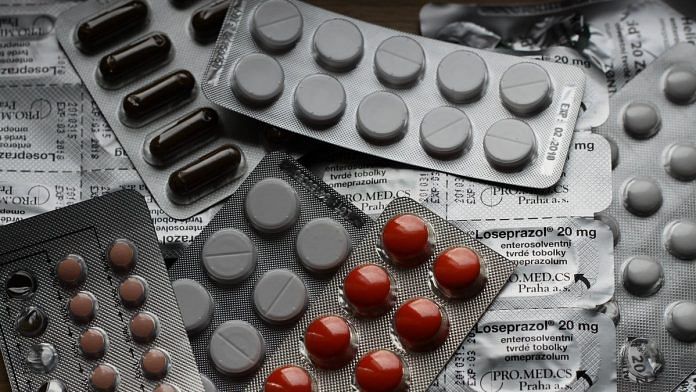New Delhi: Drug price watchdog National Pharmaceuticals Pricing Authority (NPPA) spelt confusion last week about its mandate on monitoring the marketing practices followed by pharmaceutical companies.
So far, the NPPA has been seeking compliance reports from industry associations on complaints regarding violations of the Uniform Code of Pharmaceutical Marketing Practices (UCPMP), a self-regulatory framework for the industry that aims to curb practices such as offering gifts to healthcare professionals to push a certain product. However, it said in reply to an RTI query last week that it doesn’t have the mandate to monitor potential marketing infractions.
The admission came last week, and raised questions about the oversight mechanism for marketing malpractices in the Indian pharma sector.
The NPPA, however, has now dismissed the reply as “faulty”. When reached for comment on the matter, NPPA chairman told ThePrint, “Thanks for bringing it to my notice. A corrigendum is being issued by the officer concerned.”
The NPPA, a regulatory agency tasked with fixing and monitoring the prices of essential medicines and medical devices, was constituted through a central government resolution dated 29 August 1997. It derives its powers from the drug pricing control order (DPCO) of May 2013.
The RTI query in question, accessed by ThePrint, was filed by an individual named K.V.S. Lakshman. It sought to know whether the “NPPA is mandated under the resolution to monitor the Pharmaceutical Marketing Practices”.
Replying to the question on 18 September, the NPPA clarified that it is “not authorised to monitor the pharmaceutical marketing practices” under the resolution.
Clarifying further, it replied, “No, NPPA is not authorised to monitor the Pharmaceutical Marketing Practices (under the order dated 30 May 2013) which delegates power to NPPA under the Resolution dated 29 August 1997 to exercise the functions in respect of specified Paragraphs of DPCO 2013.”
Also Read: Don’t distract doctors with online promotion of brands amid Covid: Modi govt to pharma firms
NPPA’s role
The pharma industry, on a regular basis, receives orders from the NPPA to submit reports on complaints and the action subsequently taken by committees under professional associations.
For instance, in an office memorandum issued by the NPPA on 26 August, the authority formally listed monitoring of UCPMP compliance as one of its duties while launching a fully automated ecosystem for “attending to, disposing of and monitoring of applications filed under various provisions of DPCO 2013” to encourage the government’s ‘Atmanirbhar Bharat’ programme.
In a section on the UCPMP, it said “all the (pharma manufacturing) associations shall provide on their website for uploading of complaints, the nature of complaint, details of the company against whom complaint is made, action taken by the committee under the association on such complaints, including the current status of the complaint.
“A quarterly report mentioning details of the complaint received and decision taken thereon shall be submitted by the concerned association to NPPA within 30 days of the end of the quarter via email…” it added.
On 4 September, the Department of Pharmaceuticals (DoP), which devised the draft marketing code in 2011 that was notified as UCPMP in 2014, held a meeting with the pharmaceutical industry to review the implementation of the code.
At the meeting, associations representing drug- and medical-device-makers were asked to send “quarterly compliance report” to the NPPA, with the latter then required to send a further report to DoP.
At the same meeting, the DoP told the pharma industry that “even if there are zero complaints, the report should be submitted to the National Pharmaceutical Pricing Authority (NPPA)”.
Also Read: Modi govt eyes QR, barcode to plug leak in supply chain of Covid drugs, curb black marketing
‘Sheer absurdity’
Before the NPPA said it was issuing a correction, the RTI reply had left some members of the industry struggling with questions about its implications.
“What will the NPPA do with the quarterly reports and how can it order us if it is not mandated under the law to monitor UCPMP?” said a pharma industry veteran, who represents a top lobby of drugmakers, when reached for comment.
Malini Aisola, co-convenor of the All India Drug Action Network (AIDAN), which has submitted several complaints of alleged UCPMP violations to the DoP and has been calling for a legal instrument to replace the “voluntary” UCPMP, said it is absurd that the government is monitoring a code that it can’t enforce. “It is sheer absurdity that the government is trying to monitor a mechanism of self-regulation by the industry, which it has no tools to enforce,” she said.
Also Read: PM Modi warns pharma companies not to bribe doctors with women, foreign trips and gadgets



